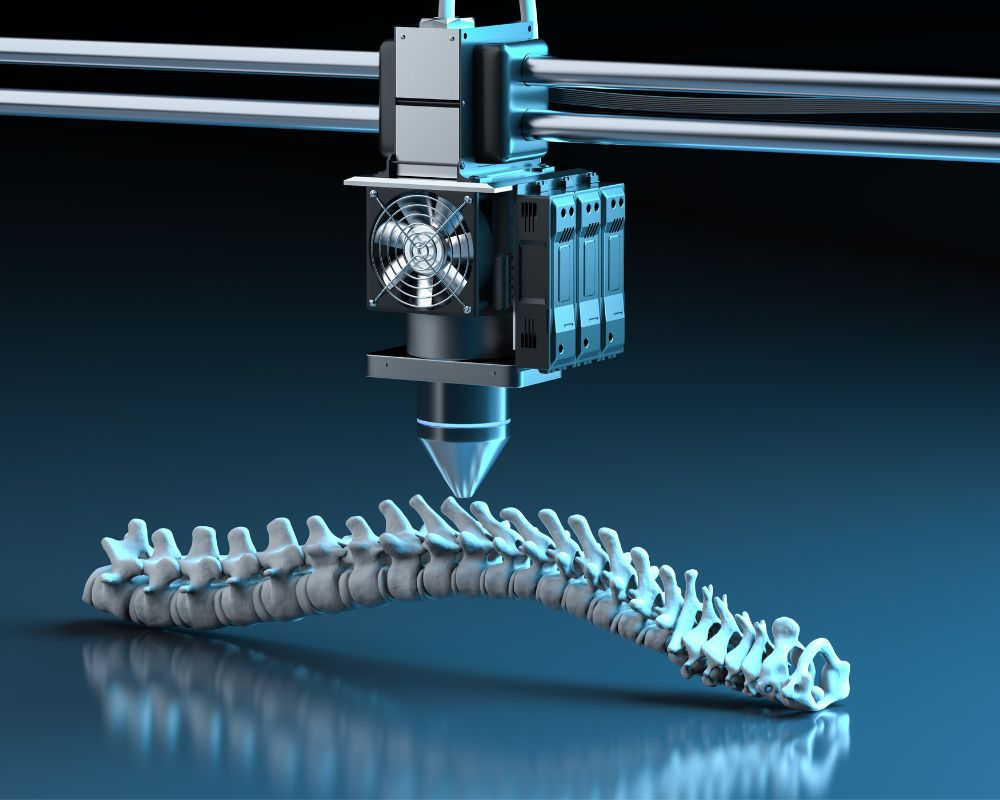2024, and it finally looks like we’re all emerging into some positive light as we finally feel ourselves rising from the post-COVID lull. With a positive outlook on the horizon, the only conversation doing the rounds is – what MedTech Trends can we expect in 2024?
So, as businesses and employees begin to gear up for another year of navigating challenges and ambitions, we decided to dig deep into research to give you insight into the upcoming MedTech trends so you can stay ahead of the game.
Five revolutionising MedTech trends to expect in 2024

As we head into the new year with a – prevention is better than treatment outlook, 2024 appears to be a year for being proactive rather than reactive.
Already, innovative companies in Australia are working on finding new ways to treat and diagnose disease. As outlined in the Value of MedTech Report, which references companies such as MAXONIQ, which is using advanced manufacturing to create custom prostheses, and NeuralDx, which is developing new ways to diagnose and measure brain disease.
With that in mind, here are five trends we anticipate will rule the MedTech industry this year.
1. Generative AI

The word on every industry expert's mind is – generative AI. According to a survey by Deloitte - more than 80% of the surveyed leaders said their organisation’s largest digital investments go toward AI. Generative AI is said to take over the medical industry over the next twelve months with a vision to
Automate routine tasks.
Easily implement and interpret results.
Generate personalised recommendations.
Potentially aid in the early detection of diseases.
There’s no denying AI is an integral part of our future and will flow into almost everything we do (as you will see as we progress with the list of trends).
2. Large Language Models (LLMs)

Gone will be the days of sitting at the laptop after hours as reps will leverage the power of Artificial Intelligence (AI) in the form of Large Language Models (LLMs). While you and I may be familiar with a well-known LLM-based AI chatbot - ChatGPT, there’s more than just conversations that LLMs have to offer. LLMs will enable reps to be productive while on the go. From preparing for meetings and answering emails and more!
3. Internet of Things (IoT)

Technology-based healthcare is already a part of our everyday lifestyle monitoring. Wearable technology, such as Fitbits, Apple watches, and Oura rings, helps us keep track of our physical activity, sleep activity, heart rate, and more. While during COVID, we realised the value and convenience of telemedicine from the comfort of our homes.
Looking forward, telemedicine is likely to go beyond the simple delivery of remote consultations. We can anticipate the growth in this area improving to allow for the following.
Access to care in remote and rural areas.
Allowing physicians the capability to remotely communicate with their teams and patients.
Enhance bedside care in intensive care.
An example of a new-age telemedicine trend is the virtual wards – whereby doctors and nurses can monitor and provide patients with the care they need at home instead of in a hospital.
4. Augmented and Virtual Reality

Augmented Reality (AR) and Virtual Reality (VR) are set to change two aspects of healthcare.
Education and training.
Diagnostics and treatment.
Through these technologies, healthcare professionals can perform realistic simulations of surgical procedures and complex medical scenarios. On the other hand, AR and VR provide the benefit of taking medical training to the next level with a more hands-on training approach.
5. 3D printing (Bioprinting)

While not new, yet still emerging, 3D printing of medical devices for surgery, orthopaedics, and dental implants provides access to equipment, especially in parts of the world where there is a shortage. But 3D printing doesn’t stop here.
3D printing is leaping forward in 2024 as experts are now working on revolutionising healthcare to produce fully functional human organs. If this succeeds, it could provide a solution to the shortage of donor organs available for transplants and potentially reduce treatment costs.
Embracing MedTech Trends in 2024

The idea of so many changes may seem overwhelming and leave you questioning the future of careers in the MedTech industry. However, the good news is that both staff and businesses can benefit by embracing AI.
Now more than ever, there is a need for creative humans. People who can ask better questions and work alongside emerging technologies to amplify ideas for better results.
Finally, for MedTech companies that want to avoid being left behind and becoming obsolete - we suggest welcoming and adopting the most relevant digital trends.
In the meantime, if you’re looking for a forward-thinking MedTech search firm who will exceed your expectations, get in touch today.
